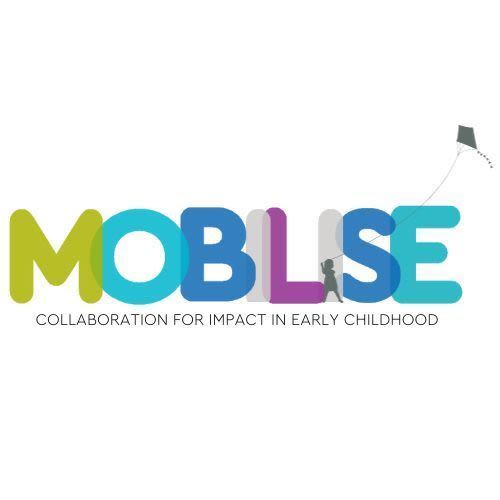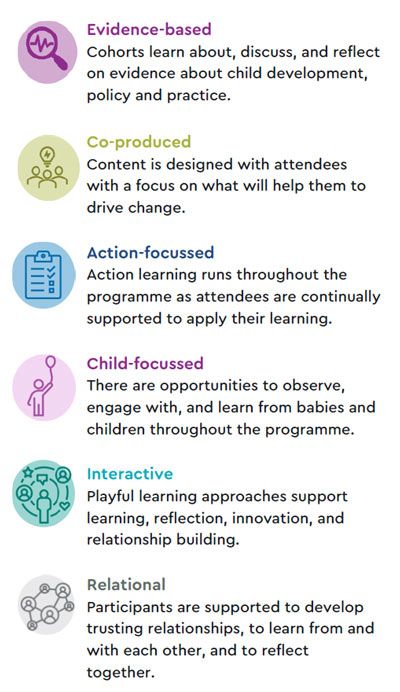

Cambridge Mobilise project seeks to strengthen bridge between early childhood research and policy

The University of Cambridge is to pilot a programme offering civil servants and early years professionals personalised access to recent research, and a cross-sector network of expertise, to help shape solutions to pressing issues in early childhood policy.
The project, known as ‘Mobilise’, aims to strengthen the connections between academia and policy-making, by ensuring that the very best research on early childhood development and learning is used to inform decisions, resulting in meaningful and effective support for babies, young children and their families.
Mobilise will start in January 2024, with the first cohort of participants currently being recruited. The programme is being run by the Play in Education, Development and Learning (PEDAL) Centre at the Faculty of Education, University of Cambridge, working in partnership with a number of UK Government Departments.
While it is one of many university-based initiatives aimed at bridging the research-policy gap, the Mobilise model will, unusually, involve small teams of around a dozen policy actors representing every level of the early years system; from national government, through to leaders in services such as family support, early years education and infant mental health.
Over the course of six months, each cohort will cover core content relating to early child development, and focus on a specific policy challenge which relates to their work. The first cohort will focus on how to “harness the power of parents” to support early childhood wellbeing, development and learning. Participants from across health, social care and early education will explore research that can inform their efforts to support parents’ contributions in early childhood. This might, for example, involve considering how best to utilise parenting programmes, or how to enhance children’s home learning environments to improve early education outcomes.
"Engagement work often focusses on telling policy makers what we have found through research. Mobilise flips that approach on its head."
Another unusual feature of the Mobilise project will be its co-designed curriculum. While the basic framework for each six-month project will be same, each individual cohort will cover different content within an adaptable structure, based on the participants’ interests and the subject matter being addressed. This is part of the programme designers’ commitment to focus closely on what will help policy makers in their work.
Sally Hogg, Senior Policy Fellow in PEDAL, said: “The fundamental goal of Mobilise is to ensure that the knowledge and evidence generated by academic research in this area actually goes on to improve children’s lives and life chances.”
“Too often our engagement work focusses on telling policy makers what we have found through research. Mobilise flips that approach on its head. We start by understanding the issues policymakers are grappling with, and then convene academics who can help them to use evidence as they unlock these issues.”
At the core of the programme are three ‘accelerator days’ in Cambridge, during which participants will be immersed in the science of early child development and explore how to design impactful, scalable solutions to support development and learning. A focus on ’action learning‘ is woven through the programme, and participants will be supported to implement their new knowledge in their work and reflect on the outcomes together.
The programme also employs playful learning. “We know that when learning is fun, interactive and engaging it has more resonance,” Hogg said. “We won’t just be getting participants to sit still and listen to lectures. We’ll be supporting them to reflect, engage and find meaning in what they learn.”
Alongside the days in Cambridge, the Mobilise team will provide participants with bespoke evidence briefings, webinars and resources to broaden and deepen their learning. They will also have opportunities to work one to one with expert researchers in Cambridge and beyond, and observe, engage with and learn from babies and children themselves.

The 2024 Mobilise pilot will enable the PEDAL team to test and adapt the programme, which they intend to repeat in future, with the same core content on early child development, but different focal points. The agendas for future Mobilise cohorts are likely to be developed in partnership with other UK government departments and/or devolved national governments.
“Over the coming years we want to try this model with multiple cohorts, applying it to different issues each time,” Hogg said. “As well as generating positive change for children, we will be testing and refining the model itself and sharing what we learn. Eventually we hope that Mobilise can be used by NGOs and other universities in other countries, so that we can have international impact.”
Mobilise is supported by the LEGO Foundation through its ongoing funding for the PEDAL Centre.
Image in this story: PEDAL Centre